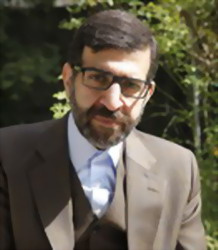What Is Going On

A plague of failures have decorated our country’s diplomatic record these days. Minister of foreign affairs visits Tripoli and despite the diplomatic protocols, has been denied meeting with Muammar Qaddafi. Recent developments of Iraq, Pakistan, Afghanistan and Yemen call for a serious review of our foreign diplomacy. Last week, our foreign minister paid a brief visit to Iraq and talked of new mechanisms to clear up misunderstandings between the two countries. What mechanisms? It seems that Mr. Mottaki has totally forgotten about the 1975 Algiers Accord. Or maybe he is afraid of Iraqis’ reaction? Is it acceptable that Iranian diplomats –the supposed trustees of citizens and the state- sacrifice our national interests for the sake of Iraqis’ sentiments? What are we going to agree on? Does it comply with the Algiers Accord? Or maybe there have been backstage agreements that the nation should not know about? What is this talk about ‘new mechanisms’?
Today, Iran suffers a self-imposed isolation both regionally and internationally. We have failed to clarify our definition of regional and extraregional cooperation. Our diplomatic body is totally ignorant of developments taking place in the territory of our eastern neighbor. Afghanistan, terrorism and narcotics were the three elements that could bring Iran and West closer, but we missed the opportunities they provided us. Our absence in two key Afghanistan conferences in Rome and Paris has exacerbated this isolation. To make the bad situation worse, our diplomatic apparatus has seemingly decided to boycott the upcoming London conference. It would just give more room to our regional competitors. Saudi Arabia is showing a stronger presence in Afghanistan while Turkey has offered to broker arguments between Pakistan and Afghanistan. The Saudis are once again infiltrating Pakistan’s political scene. Nawaz Sharif’s return to power and resumption of anti-Iranian policies of 1990s is now looming on the horizon. Iran is at the nadir of its regional diplomatic performance.
The Islamic Republic was once the hegemon power in Middle East and a key global actor. Our geopolitical and geostrategic capacities, our history, civilization and culture distinguish us from other countries in Middle East. What has happened that Saudi Arabia, once fighting with Yemen, has now initiated dialogue with this country and turned into a major player in both Yemen and Middle East? Why is the United States trying to become Yemen’s strategic partner? in the meantime, hundreds of American military and political agents are now active in Herat, a few kilometers from Iran’s borders. Are they trying to help Afghans establish security or there is another story bubbling under the surface?
The behavior of our diplomatic functionaries is not understandable. I hope that they are least aware of the serious developments occurring in the region and know that Iran’s regional status is more fragile than ever.

